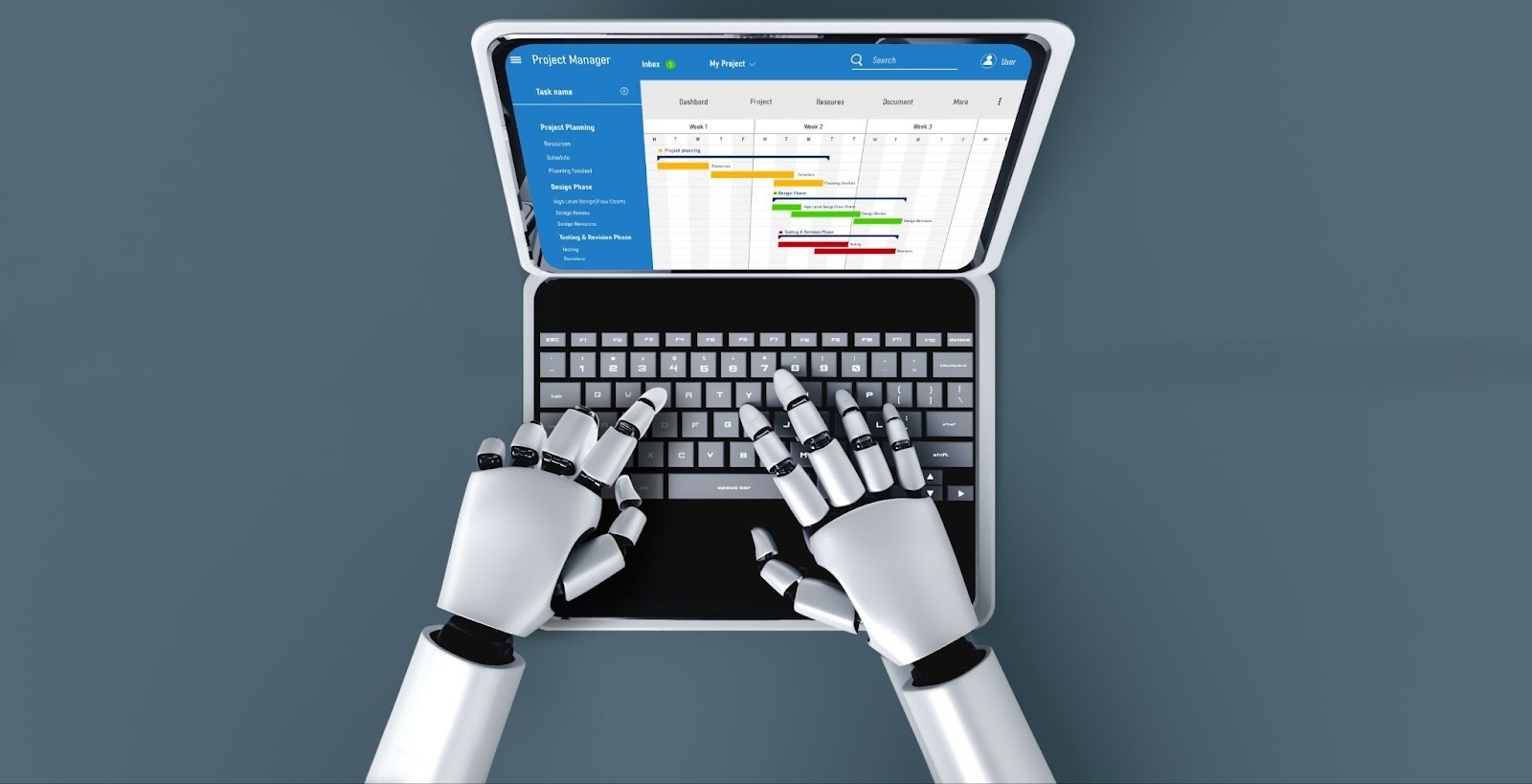
Customer Relationship Management (CRM) systems have become essential tools for organizations aiming to manage interactions with current and potential customers. However, as the volume and complexity of customer data grow, traditional CRM systems often struggle to provide actionable insights in real-time. This is where Artificial Intelligence (AI) steps in, transforming conventional CRMs into intelligent systems capable of delivering real-time business insights.
By integrating AI, businesses can harness the power of predictive analytics, machine learning, and real-time data processing to gain a deeper understanding of customer behaviors and preferences. This fusion not only streamlines operations but also fosters more personalized and efficient customer interactions, ultimately driving growth and competitiveness.
What Is AI-driven CRM Analytics?
AI-driven CRM analytics uses artificial intelligence to analyze vast customer data, going beyond traditional methods by leveraging machine learning and predictive models. Instead of relying solely on historical data, AI identifies patterns, forecasts trends, and generates actionable insights automatically.
By processing data from purchase histories, browsing behavior, and social media, AI uncovers hidden correlations, helping businesses anticipate customer needs, refine marketing strategies, and enhance satisfaction. With AI-powered customer insights, organizations shift from reactive to proactive engagement, solving issues before they arise and seizing new opportunities.
How does AI enhance data processing in CRM?
Integrating AI into CRM systems revolutionizes data processing by introducing automation, accuracy, and speed.
Key enhancements include:
Real-Time Data Processing
AI enables the continuous analysis of incoming data, allowing businesses to respond promptly to customer actions and market changes. This real-time data processing in CRM ensures that decisions are based on the most current information available.
Automated Data Entry and Cleanup
Manual data entry is prone to errors and inconsistencies. AI automates this process, reducing inaccuracies and ensuring that the CRM contains clean, reliable data.
Predictive Analytics
By analyzing historical and real-time data, AI can predict future customer behaviors and market trends. This predictive analytics capability empowers businesses to make informed decisions and strategize effectively.
Natural Language Processing (NLP)
AI utilizes NLP to interpret and analyze textual data from customer communications, such as emails and chat logs. This allows for a deeper understanding of customer sentiments and needs.
Intelligent Data Segmentation
AI can categorize customers into distinct segments based on behaviors and preferences, enabling more targeted and effective marketing campaigns.

What types of real-time insights can AI provide?
AI integration into CRM systems offers a plethora of real-time insights that are crucial for strategic decision-making:
Customer Behavior Analysis
AI analyzes customer interactions across various channels to identify purchasing patterns, preferences, and engagement levels. This customer behavior analysis using AI helps businesses tailor their offerings to meet specific customer needs.
Sales Forecasting
Through machine learning for sales forecasting, AI predicts future sales trends based on historical data and current market conditions. This enables businesses to allocate resources efficiently and set realistic targets.
Churn Prediction
AI identifies indicators that a customer may discontinue using a product or service. By recognizing these signs early, companies can implement retention strategies to mitigate churn.
Sentiment Analysis
By evaluating customer feedback and social media mentions, AI assesses public sentiment toward a brand or product, allowing businesses to address concerns and capitalize on positive perceptions.
Lead Scoring
AI assigns scores to leads based on their likelihood to convert, enabling sales teams to prioritize efforts on prospects with the highest potential.
How can AI improve customer experience through CRM?
AI significantly enhances the customer experience by facilitating more personalized, efficient, and responsive interactions:
Personalized Recommendations
AI analyzes individual customer data to suggest products or services that align with their preferences, enhancing satisfaction and increasing sales opportunities.
Chatbots and Virtual Assistants
AI-powered chatbots provide instant responses to customer inquiries, offering 24/7 support and resolving common issues without human intervention.
Predictive Customer Support
By anticipating customer issues before they arise, AI enables proactive support measures, reducing downtime and improving user satisfaction.
Dynamic Content Delivery
AI customizes website content and marketing messages in real-time based on user behavior, ensuring relevant and engaging interactions.
Voice Recognition
Integrating AI with voice recognition technology allows for hands-free navigation and support, catering to customers who prefer voice interactions.
How does AI help in sales and marketing optimization?
AI transforms sales and marketing strategies by introducing automation and intelligence that drive efficiency and effectiveness:
Automated Campaign Management
AI automates the creation, execution, and monitoring of marketing campaigns, optimizing timing and content for maximum impact.
Customer Segmentation
Through detailed analysis, AI segments customers based on various criteria, allowing for highly targeted marketing efforts that resonate with specific audiences.
Performance Analytics
AI evaluates the success of sales and marketing initiatives in real-time, providing insights into what strategies are working and where improvements are needed.
Pricing Optimization
AI assesses market conditions and customer behavior to recommend optimal pricing strategies that balance competitiveness with profitability.
Content Generation
AI assists in creating personalized content for emails, social media, and other marketing channels, ensuring consistency and relevance.

What are the security and compliance benefits of AI in CRM?
AI-powered CRM systems enhance data security and regulatory compliance by detecting threats, preventing fraud, and ensuring adherence to industry standards. With real-time data processing in CRM, businesses can proactively safeguard customer information while reducing human error.
Automated Threat Detection
AI detects suspicious patterns in customer interactions, helping prevent fraud and security breaches before they occur.
Enhanced Data Security
AI-driven encryption and access controls limit unauthorized access, ensuring only authorized users handle sensitive data.
Compliance Monitoring
AI continuously checks data handling practices for regulatory compliance (e.g., GDPR, HIPAA) and alerts businesses to potential violations.
Real-Time Data Processing and Audit Trails
AI maintains detailed audit logs of data access and modifications, ensuring transparency for security reviews and compliance audits.
Predictive Risk Analysis
Using predictive analytics in CRM, AI anticipates security risks, enabling businesses to implement proactive safeguards.
What challenges come with integrating AI into CRM?
While the integration of AI into CRM systems offers numerous benefits, it also presents several challenges that organizations must address to ensure successful implementation.
Data Privacy and Security Concerns
The integration of AI into CRM systems raises not only technological but also data protection-related questions. Where data is processed, where servers are located, and which data is exactly used by AI are crucial points that need careful consideration.
Integration Complexity
Implementing AI into existing CRM systems often requires complex integrations with other tools and platforms. Ensuring seamless connectivity between AI systems and other business tools can be technically challenging and time-consuming.
High Implementation Costs
The cost of integrating AI into CRM systems can be substantial, encompassing expenses related to technology acquisition, infrastructure upgrades, and ongoing maintenance. Organizations must carefully assess the return on investment to justify these expenditures.
Lack of Skilled Workforce
Implementing and managing AI-driven CRM systems require specialized skills that may be lacking within the existing workforce. This skills gap can hinder the effective deployment and utilization of AI technologies.
Data Quality and Management
AI systems rely on high-quality data to function effectively. Inconsistent or inaccurate data can lead to erroneous insights and predictions, undermining the value of AI integration. Ensuring data integrity is a critical challenge.
User Adoption and Trust
Employees may be skeptical about adopting AI tools, questioning their accuracy and data privacy implications. This skepticism can hinder user adoption and limit the effectiveness of AI initiatives.

How can businesses successfully implement AI in CRM?
Successfully integrating AI into CRM systems necessitates a strategic approach that addresses both technological and organizational factors.
Develop a Clear Strategy
Begin by defining clear objectives for AI integration, aligning them with overall business goals. This strategic clarity guides the implementation process and ensures that AI initiatives deliver measurable value.
Invest in Quality Data Management
Ensure that the data feeding into AI systems is accurate, consistent, and comprehensive. Implement robust data governance practices to maintain data quality, as AI's effectiveness is directly linked to the quality of data it processes.
Foster Cross-Functional Collaboration
Encourage collaboration between IT, sales, marketing, and customer service teams to ensure that AI tools meet the diverse needs of the organization. This cross-functional approach facilitates user adoption and maximizes the benefits of AI integration.
Provide Training and Support
Offer comprehensive training programs to equip employees with the skills needed to effectively use AI-powered CRM tools. Continuous support and resources help build confidence and promote widespread adoption.
Start with Pilot Projects
Implement AI in a phased manner, starting with pilot projects that allow for testing and refinement. This approach enables organizations to assess AI's impact, make necessary adjustments, and scale successful initiatives.
Partner with Experienced Vendors
Collaborate with vendors who have a proven track record in AI and CRM integrations. Their expertise can help navigate technical complexities and ensure a smoother implementation process.
Monitor and Evaluate Performance
Continuously monitor the performance of AI tools, using key performance indicators to evaluate their impact. Regular assessments allow for ongoing optimization and ensure that AI initiatives remain aligned with business objectives.
The Future of CRM: AI-Powered Insights for Smarter Business Decisions
AI is revolutionizing CRM by unlocking real-time business insights, streamlining data processing, and optimizing sales and marketing. Businesses can leverage predictive analytics in CRM, AI-powered customer insights, and machine learning for sales forecasting to enhance customer behavior analysis. While challenges like data privacy and integration exist, strategic implementation ensures a smooth transition.
Leapify CRM leads this transformation with predictive AI CRM solutions that keep businesses ahead. By harnessing real-time data, AI enhances customer experiences, drives revenue, and ensures compliance. Embracing AI in CRM is no longer optional—it’s essential for success. Contact us today!



